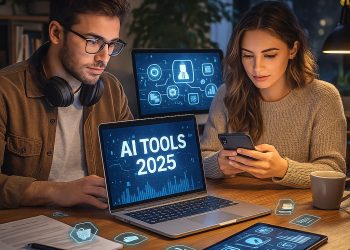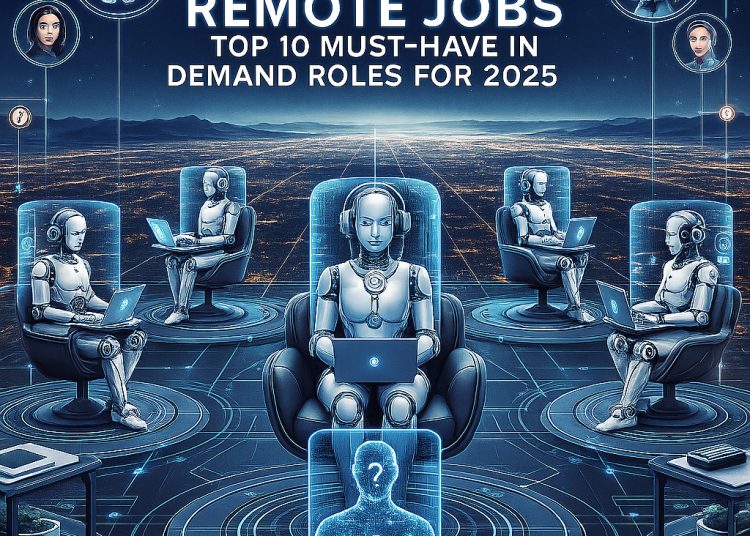As the digital revolution accelerates, artificial intelligence (AI) continues to reshape the workforce landscape, creating new opportunities and transforming existing roles. For professionals seeking flexibility and growth, AI remote jobs are emerging as a powerful way to balance career advancement with modern work preferences. Understanding the key roles set to be in demand by 2025 can help individuals and organizations prepare for success in this evolving environment.
Why AI Remote Jobs Are Gaining Momentum
The integration of AI across industries is driving a significant demand for skilled professionals who can design, implement, manage, and optimize intelligent systems. Simultaneously, advances in communication technology and shifting work culture have propelled remote work from a niche option to a mainstream reality. Combining these trends, AI remote jobs offer opportunities that transcend traditional office constraints, providing global talent pools with access to cutting-edge projects while enhancing work-life balance.
The ability to work remotely allows companies to tap into a more diverse range of skills, reduce overhead costs, and increase productivity. For workers, especially those passionate about AI technologies, remote roles offer flexibility without sacrificing engagement in innovative work. This synergy is expected to expand even further by 2025.
Key AI Remote Jobs to Watch for 2025
1. Machine Learning Engineer
At the forefront of AI development, machine learning engineers design algorithms and systems that enable machines to learn and make decisions. Remote positions in this role involve building scalable models, processing large datasets, and refining predictive analytics. Since many AI projects operate on cloud platforms, engineers can collaborate globally without being tied to a physical office.
2. AI Data Scientist
Data scientists analyze vast volumes of data to derive insights that fuel AI models. The role combines statistics, programming, and domain expertise to interpret complex datasets. Remote jobs in this field require proficiency in Python, R, or SQL and often involve working alongside cross-functional teams spread across different time zones, making virtual collaboration a daily norm.
3. Natural Language Processing (NLP) Specialist
NLP specialists develop AI systems that understand and generate human language, enabling applications like chatbots, voice assistants, and sentiment analysis tools. This role is in high demand across industries such as customer service, healthcare, and finance. Remote NLP experts contribute by refining models that enhance user interactions, utilizing cloud-based tools and repositories.
4. AI Product Manager
AI product managers oversee the development cycle of AI-driven products, balancing technical feasibility with market needs. This role requires understanding AI capabilities and translating them into customer value propositions. Remote work suits this position well, as managing distributed teams, coordinating sprints, and communicating with stakeholders can be efficiently handled through digital platforms.
5. AI Ethics and Compliance Advisor
As AI adoption grows, ethical concerns and regulatory requirements become more important. Advisors specializing in AI ethics ensure that systems adhere to fairness, privacy, and transparency standards. Remote roles in this area involve policy development, auditing algorithms, and aligning AI deployments with legal frameworks, often collaborating with global entities.
Skills and Tools to Thrive in AI Remote Jobs
Successful professionals taking on AI remote jobs must cultivate a blend of technical prowess, communication skills, and adaptability. Mastery of programming languages like Python, knowledge of AI frameworks such as TensorFlow or PyTorch, and fluency with data visualization tools are fundamental. Additionally, familiarity with cloud services (AWS, Azure, GCP) enhances the ability to deploy models in distributed environments.
Soft skills play an equally vital role. Clear communication, especially in virtual meetings or asynchronous work settings, helps maintain team cohesion and project clarity. Time management and self-discipline ensure deadlines are met without direct supervision, while cultural awareness fosters smooth collaboration across diverse teams.
Preparing for the Future: Education and Continuous Learning
Given the rapid evolution of AI technologies, continuous learning is essential for those pursuing AI remote jobs. Online courses, certifications, and boot camps focusing on AI, machine learning, and data science provide accessible pathways for skill enhancement. Engaging with open-source projects and participating in AI communities builds practical experience and professional networks.
Employers increasingly value candidates who demonstrate not only technical knowledge but also the ability to learn and adapt. Staying informed about emerging AI trends, ethical guidelines, and software tools ensures long-term career resilience and growth.
Conclusion
The synergy between artificial intelligence and remote work is creating dynamic opportunities for career growth by 2025. Professionals who equip themselves with relevant skills and embrace flexible work models can position themselves at the forefront of innovation. From technical roles like machine learning engineering and NLP specialization to strategic positions like product management and ethics advisory, AI remote jobs constitute a vital frontier for success in the modern workforce. Preparing for these roles today can unlock significant professional rewards in the years to come.






































